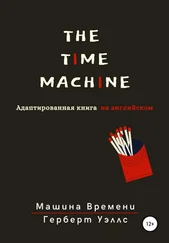Герберт Уэллс - The World Set Free
Здесь есть возможность читать онлайн «Герберт Уэллс - The World Set Free» — ознакомительный отрывок электронной книги совершенно бесплатно, а после прочтения отрывка купить полную версию. В некоторых случаях можно слушать аудио, скачать через торрент в формате fb2 и присутствует краткое содержание. Жанр: foreign_antique, foreign_prose, на английском языке. Описание произведения, (предисловие) а так же отзывы посетителей доступны на портале библиотеки ЛибКат.
- Название:The World Set Free
- Автор:
- Жанр:
- Год:неизвестен
- ISBN:нет данных
- Рейтинг книги:5 / 5. Голосов: 1
-
Избранное:Добавить в избранное
- Отзывы:
-
Ваша оценка:
- 100
- 1
- 2
- 3
- 4
- 5
The World Set Free: краткое содержание, описание и аннотация
Предлагаем к чтению аннотацию, описание, краткое содержание или предисловие (зависит от того, что написал сам автор книги «The World Set Free»). Если вы не нашли необходимую информацию о книге — напишите в комментариях, мы постараемся отыскать её.
The World Set Free — читать онлайн ознакомительный отрывок
Ниже представлен текст книги, разбитый по страницам. Система сохранения места последней прочитанной страницы, позволяет с удобством читать онлайн бесплатно книгу «The World Set Free», без необходимости каждый раз заново искать на чём Вы остановились. Поставьте закладку, и сможете в любой момент перейти на страницу, на которой закончили чтение.
Интервал:
Закладка:
And with an equal speed atomic engines of various types invaded industrialism. The railways paid enormous premiums for priority in the delivery of atomic traction engines, atomic smelting was embarked upon so eagerly as to lead to a number of disastrous explosions due to inexperienced handling of the new power, and the revolutionary cheapening of both materials and electricity made the entire reconstruction of domestic buildings a matter merely dependent upon a reorganisation of the methods of the builder and the house-furnisher. Viewed from the side of the new power and from the point of view of those who financed and manufactured the new engines and material it required the age of the Leap into the Air was one of astonishing prosperity. Patent-holding companies were presently paying dividends of five or six hundred per cent. and enormous fortunes were made and fantastic wages earned by all who were concerned in the new developments. This prosperity was not a little enhanced by the fact that in both the Dass-Tata and Holsten-Roberts engines one of the recoverable waste products was gold – the former disintegrated dust of bismuth and the latter dust of lead – and that this new supply of gold led quite naturally to a rise in prices throughout the world.
This spectacle of feverish enterprise was productivity, this crowding flight of happy and fortunate rich people – every great city was as if a crawling ant-hill had suddenly taken wing – was the bright side of the opening phase of the new epoch in human history. Beneath that brightness was a gathering darkness, a deepening dismay. If there was a vast development of production there was also a huge destruction of values. These glaring factories working night and day, these glittering new vehicles swinging noiselessly along the roads, these flights of dragon-flies that swooped and soared and circled in the air, were indeed no more than the brightnesses of lamps and fires that gleam out when the world sinks towards twilight and the night. Between these high lights accumulated disaster, social catastrophe. The coal mines were manifestly doomed to closure at no very distant date, the vast amount of capital invested in oil was becoming unsaleable, millions of coal miners, steel workers upon the old lines, vast swarms of unskilled or under-skilled labourers in innumerable occupations, were being flung out of employment by the superior efficiency of the new machinery, the rapid fall in the cost of transit was destroying high land values at every centre of population, the value of existing house property had become problematical, gold was undergoing headlong depreciation, all the securities upon which the credit of the world rested were slipping and sliding, banks were tottering, the stock exchanges were scenes of feverish panic; – this was the reverse of the spectacle, these were the black and monstrous under-consequences of the Leap into the Air.
There is a story of a demented London stockbroker running out into Threadneedle Street and tearing off his clothes as he ran. ‘The Steel Trust is scrapping the whole of its plant,’ he shouted. ‘The State Railways are going to scrap all their engines. Everything’s going to be scrapped – everything. Come and scrap the mint, you fellows, come and scrap the mint!’
In the year 1955 the suicide rate for the United States of America quadrupled any previous record. There was an enormous increase also in violent crime throughout the world. The thing had come upon an unprepared humanity; it seemed as though human society was to be smashed by its own magnificent gains.
For there had been no foresight of these things. There had been no attempt anywhere even to compute the probable dislocations this flood of inexpensive energy would produce in human affairs. The world in these days was not really governed at all, in the sense in which government came to be understood in subsequent years. Government was a treaty, not a design; it was forensic, conservative, disputatious, unseeing, unthinking, uncreative; throughout the world, except where the vestiges of absolutism still sheltered the court favourite and the trusted servant, it was in the hands of the predominant caste of lawyers, who had an enormous advantage in being the only trained caste. Their professional education and every circumstance in the manipulation of the fantastically naive electoral methods by which they clambered to power, conspired to keep them contemptuous of facts, conscientiously unimaginative, alert to claim and seize advantages and suspicious of every generosity. Government was an obstructive business of energetic fractions, progress went on outside of and in spite of public activities, and legislation was the last crippling recognition of needs so clamorous and imperative and facts so aggressively established as to invade even the dingy seclusions of the judges and threaten the very existence of the otherwise inattentive political machine.
The world was so little governed that with the very coming of plenty, in the full tide of an incalculable abundance, when everything necessary to satisfy human needs and everything necessary to realise such will and purpose as existed then in human hearts was already at hand, one has still to tell of hardship, famine, anger, confusion, conflict, and incoherent suffering. There was no scheme for the distribution of this vast new wealth that had come at last within the reach of men; there was no clear conception that any such distribution was possible. As one attempts a comprehensive view of those opening years of the new age, as one measures it against the latent achievement that later years have demonstrated, one begins to measure the blindness, the narrowness, the insensate unimaginative individualism of the pre-atomic time. Under this tremendous dawn of power and freedom, under a sky ablaze with promise, in the very presence of science standing like some bountiful goddess over all the squat darknesses of human life, holding patiently in her strong arms, until men chose to take them, security, plenty, the solution of riddles, the key of the bravest adventures, in her very presence, and with the earnest of her gifts in court, the world was to witness such things as the squalid spectacle of the Dass-Tata patent litigation.
There in a stuffy court in London, a grimy oblong box of a room, during the exceptional heat of the May of 1956, the leading counsel of the day argued and shouted over a miserable little matter of more royalties or less and whether the Dass-Tata company might not bar the Holsten-Roberts’ methods of utilising the new power. The Dass-Tata people were indeed making a strenuous attempt to secure a world monopoly in atomic engineering. The judge, after the manner of those times, sat raised above the court, wearing a preposterous gown and a foolish huge wig, the counsel also wore dirty-looking little wigs and queer black gowns over their usual costume, wigs and gowns that were held to be necessary to their pleading, and upon unclean wooden benches stirred and whispered artful-looking solicitors, busily scribbling reporters, the parties to the case, expert witnesses, interested people, and a jostling confusion of subpoenaed persons, briefless young barristers (forming a style on the most esteemed and truculent examples) and casual eccentric spectators who preferred this pit of iniquity to the free sunlight outside. Every one was damply hot, the examining King’s Counsel wiped the perspiration from his huge, clean-shaven upper lip; and into this atmosphere of grasping contention and human exhalations the daylight filtered through a window that was manifestly dirty. The jury sat in a double pew to the left of the judge, looking as uncomfortable as frogs that have fallen into an ash-pit, and in the witness-box lied the would-be omnivorous Dass, under cross-examination…
Holsten had always been accustomed to publish his results so soon as they appeared to him to be sufficiently advanced to furnish a basis for further work, and to that confiding disposition and one happy flash of adaptive invention the alert Dass owed his claim…
Читать дальшеИнтервал:
Закладка:
Похожие книги на «The World Set Free»
Представляем Вашему вниманию похожие книги на «The World Set Free» списком для выбора. Мы отобрали схожую по названию и смыслу литературу в надежде предоставить читателям больше вариантов отыскать новые, интересные, ещё непрочитанные произведения.
Обсуждение, отзывы о книге «The World Set Free» и просто собственные мнения читателей. Оставьте ваши комментарии, напишите, что Вы думаете о произведении, его смысле или главных героях. Укажите что конкретно понравилось, а что нет, и почему Вы так считаете.


![Герберт Уэллс - The War of the Worlds [С англо-русским словарем]](/books/26611/gerbert-uells-the-war-of-the-worlds-s-anglo-thumb.webp)









